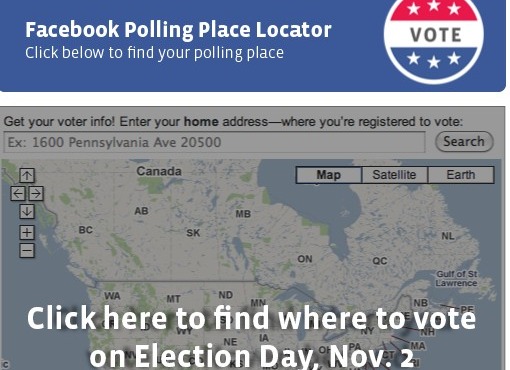The U.S. presidential election cycle used to be like a regulated yet exhilarating amusement park ride that you could count on starting and stopping at certain times. Think of the Scrambler: dizzying in experience yet timed to end at a reliable time. Now, with the ubiquity of the 24-hour news cycle and the hordes of blogs and other commentators, the teeth have been stripped off the gears that regulate the speed of the news cycle to the point that not only can you never get off this ride but it just keeps going faster and faster. Barf bags not included.
Due to the breakneck recycle speed of the political news cycle, trying to stay informed on what’s happening in the world of politics can be nauseating. You’re probably always going to be me missing something somewhere. However aggregating your own collection of news sources doesn’t have to be so stupefying since Google has made it a little easier for voters and otherwise interested parties to attempt to stay abreast of the latest news concerning topics, candidates, and election results. Google Politics & Elections, a new wing of the Google News service, collects articles covering breaking stories related to politics in the United States. With the service, readers can isolate topics to certain candidates (right now it’s a bunch of Republican primary candidates and the current POTUS, Barack Obama) as well as issues related to categories like the economy, social issues, and healthcare. From the post on Google’s official blog:
The site enables voters, journalists and campaigns to quickly sort through election info by popularity, race or issues. People can also check out the Trends Dashboard to take the web’s real-time political pulse by comparing candidates’ YouTube video views, search traffic and Google News mentions. Campaign staffers, advocates and everyday citizens can utilize our tools and features to reach, engage and inspire voters.
What might be most interesting for anyone who makes a hobby out of political speculation there is a function on the Politics & Elections homepage where you can track trends related to each specific candidate. For instance, given the latest surge of Rick Santorum out of the bowels of obscurity and into a legitimate third place (the fact that third place is now a consummation devoutly to be wished is kind of absurd, really), readers can actually see the rise in Google News Mentions of Santorum in the past week. It’s a fun tool as an observer, but given how tumultuous this primary cycle has been for all Republican candidates I wouldn’t recommend placing any bets on the reliability of any search trends as proof of sustainable electability.
The Google Politics & Elections also employs the Hangouts tools for journalists who are personally covering the election, perhaps as an effort to promote sodality and collaboration but I anticipate it will most likely be used as an online watering hole where everybody commiserates and decompresses. You can add the Politics & Elections tool to your Google+ account, as well, if you’re interested in participating or watching any of the activity in the Hangouts. Additionally, you can follow news stories as they develop by adding this group to your Circles. The news service will also cover international politics as well as the home-grown brews but given that we are officially in the election year, expect most of the news to be dominated by the election of the next POTUS.
Since today kicks off the election of the Republican primaries with the Iowa caucus, following these services might be a good idea if any of you are hoping to stay informed as the results start to come in about which candidate will claim victory in Iowa this evening.
